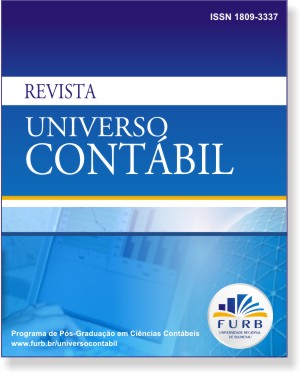MANAGEMENT CONTROL SYSTEMS’ LITERATURE DEVELOPMENT: THEORETICAL APPROACHES AND CRITIQUES WITHIN THE FUNCTIONALIST PARADIGM
DOI :
https://doi.org/10.4270/ruc.20117Mots-clés :
management control systems, literature review, theories, critiques, paradigmsRésumé
This paper draws a simplified map of the evolution and current state of the theories and frameworks behind management accounting within the functionalist paradigm (PUXTY, 1993) as an aid for researchers and advanced business students. The study summarily presents the paradigms recognized in management accounting as a way to provide a better perspective of the field to novice researchers. Within the functionalist paradigm the evolution of management accounting literature is documented. The historical analysis, framed as a timeline, organizes the diverse research that has dominated the field since the beginning of 1900s in clusters around a certain theory or framework. The ten frameworks identified are: 1) conventional wisdom; 2) mathematical modeling; 3) systems; 4) Anthony’s framework; 5) behavioral; 6) human information processing; 7) transaction costs; 8) agency theory; 9) contingency theory; and 10) strategic. The transition from one cluster of theory or framework to another is explained by critiques; however, some theories and frameworks evolved naturally into others without the need of a critique.Téléchargements
Téléchargements
Publié-e
Comment citer
Numéro
Rubrique
Licence
Os direitos autorais para artigos publicados nesta revista são do autor, com direitos de primeira publicação para a revista. Em virtude de aparecerem nesta revista de acesso público, os artigos são de uso gratuito, com atribuições próprias, em aplicações educacionais e não-comerciais. A revista permitirá o uso dos trabalhos publicados para fins não-comerciais, incluindo direito de enviar o trabalho para bases de dados de acesso público. Os artigos publicados são de total e exclusiva responsabilidade dos autores.
• O(s) autor(es) autoriza(m) a publicação do artigo na revista;
• O(s) autor(es) garante(m) que a contribuição é original e inédita e que não está em processo de avaliação em outra(s) revista(s);
• A revista não se responsabiliza pelas opiniões, ideias e conceitos emitidos nos textos, por serem de inteira responsabilidade de seu(s) autor(es);
• É reservado aos editores o direito de proceder ajustes textuais e de adequação do artigo às normas da publicação;
• O(s) autor(es) declaram que o artigo não possui conflitos de interesse.


